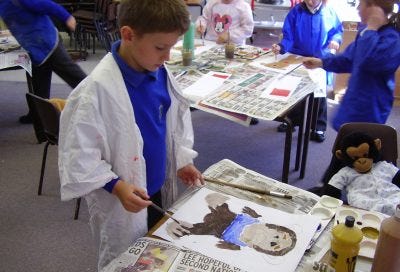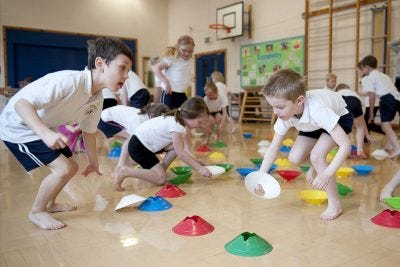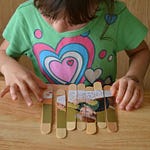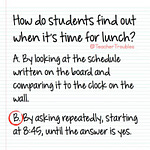Today is the 1st of 2 articles that look directly at the assessment of the foundation subjects. OFSTED has now begun to focus in some depth on these subjects and as such the subject coordinators and the planning and delivery of them has come under scrutiny.
If you look at the National Curriculum you will see that it is divided very much into 2 parts.
The core subjects of Maths, Literacy and Science
The Foundation subjects (all the rest!)
If you look a little closer you will then notice that the National curriculum guidance is VERY much slanted towards the Core subjects, to the point of approximately 70 pages for Maths and Literacy and 30 pages for Science. In contrast the Foundation subjects get 2 pages each!
This focus is similarly reflected in the fact that the SAT's tests are in the subject areas of Maths and Literacy (and I anticipate Science will soon be included) - and schools being judged on their performance in these tests, means that there is a concentration and focus on these areas that reaches manic proportions in some cases!
However, in schools, we are tasked with providing a "broad and balanced curriculum" for our pupils and that means the Foundation subjects are vital inclusions in school provision.
The priority for this is to timetable for a balanced curriculum. This may or may not be a priority for any school you may join but it ensures that each subject gets an allocated amount of teaching time across the taught terms and academic year. Without this; subjects can either be omitted altogether by staff or get a passing nod in the timetable.
OFSTED having noticed the "over focussing" by some schools on the core subjects and are now looking in detail at the foundation subjects when they visit. This is starting to cause some concern in schools as both class teachers and subject coordinators have in some cases let things slide!
The Foundation subjects:
As with any subject there are 3 things you need to know and do...
What are the curriculum requirements?
How did the children perform when taught these areas?
What am I doing to assist children who don't reach satisfactory standards?
This is a broad overview but it forms the basis for any subject whether core or foundation.
The 1st and the 3rd are practical things that you should be doing - what do I need to teach and how do I teach it are the basics of planning at all 3 levels (long / medium and short term). The 3rd is what do I practically do to assist children who have not made sufficient progress or understanding?
But it is the 2nd that is the CRUCIAL one in these 3 and it is on this that many teachers fall down.
Lets take a look at how many foundation subjects are assessed (if at all?)
Foundation subjects can be split into 2 broad groups:-
Practical based subjects (Art, D/T, Computing, Music, P.E, Languages)
Academic subjects (History, Geography)
You can see there are more practical based subject areas than academic - yet all these subjects need to have assessment to meet the 3 criteria we listed earlier.
It is not enough to just teach these subjects - we need to know how the pupils have achieved and also what may be required if we decide to put in learning support. In order to be able to do this we need to assess ....yet how can this be done and what do we need to record?
You need to have some form of record keeping system: I will go into more detail about this in the 2nd article but think about being asked this sort of question....
" Last term I see that you did some Music work about the great fire of London - how did this go? What was the main core learning aspect and how did the children achieve. What was the area of learning that they found most challenging and what did you do about it?"
Or
" In your Geography focus this term how did the children achieve in their climate work? Were there any aspects that they really couldn't understand...what were they and how did you identify these areas?"
These sort of questions are not too difficult to answer if you have had in place an assessment procedure and schedule for the subjects. However if you do not have this in place then you are trying to answer from memory and your answers could be vague without any records or paperwork to substantiate your statements.
I hope that this has outlined why we need to have assessment in the Foundation subjects and in the next article I will talk about the very basics of planning and assessment based on pupil achievement.
















Share this post